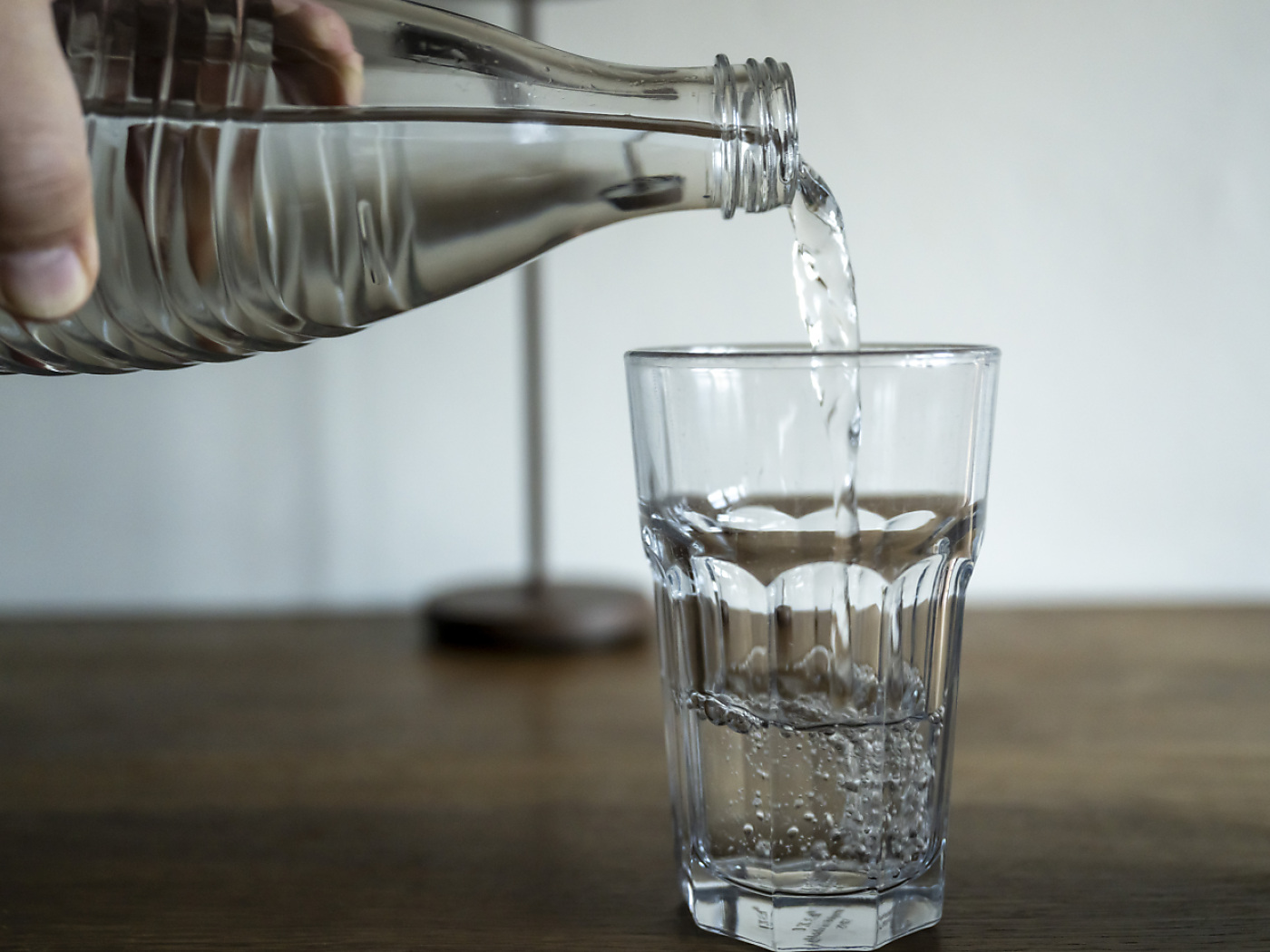
Nestlé Waters scandal: Élysée Palace ‘knew of misconduct’

The rapporteur for the French Senate’s bottled water inquiry committee revealed on Tuesday that the presidency had granted Swiss company Nestlé Waters access to government ministries, despite knowing about the company’s long-standing misconduct.
+ Get the most important news from Switzerland in your inbox
The committee was set to hear from Alexis Kohler, the Secretary General of the Élysée Palace, who has since resigned. However, he declined to appear, citing “separation of powers”. Instead, the hearing featured a brief presentation of “74 pages of documents” sent by the Élysée, which, according to the rapporteur, highlighted the “density” of exchanges between Nestlé and the presidency.
“The President of the Republic was far from being an impregnable fortress against Nestlé’s lobbying. On the contrary, contacts were frequent, and the Élysée opened the doors of several ministries to the Swiss group. Since at least 2022, the President has known that Nestlé had been cheating for years on the treatment of its Perrier and Hépar mineral waters,” said French senator Alexandre Ouizille.
+ Nestlé defends its mineral water after scandal
“The presidency knew this would have distorted competition with other mineral water companies. It was also aware of the bacteriological and even virological contamination of certain boreholes,” said the senator, quoting from internal memos. The exchanges and meetings between Nestlé and the Élysée Palace continued from 2022 until the end of 2024.
Around 100 hearings
Over the past four months, the committee has interviewed nearly 100 people, including three current and former ministers, in an effort to “establish genuine transparency in a matter that has been constantly concealed from the public, certain government departments and even the national parliament,” said its chairman Laurent Burgoa on Tuesday. The scandal erupted in early 2024, following revelations by journalists from Le Monde and franceinfo about the use of banned treatments by mineral water companies.

More
Nestlé Waters on trial in France over illegal waste dumps
Just before the publication, Nestlé Waters admitted to “past” practices and announced it would replace carbon filters and UV treatments with a 0.2 micron microfiltration system. The government, informed by Nestlé in 2021, approved the transformation plan in 2023. However, the threshold used sparked debate, as European regulations state that the process should not result in the disinfection of mineral water.
Internal memos from the 2022 presidency, cited by the rapporteur, revealed advisers’ concerns about the “excessive use of filtration” and the “vulnerability” of certain Hépar sites, where drilling has since been halted. An email from late 2024, sent to Kohler by an adviser to the chairman, highlighted that Perrier springs in the Gard region were “increasingly regularly polluted,” particularly with bacteriological contaminants and faecal matter.
He also highlighted potential “problems between brands: those with pure water have no interest in their competitors using purification techniques.” Nestlé Waters has consistently defended the “food safety” of its products and its transparent dealings with authorities, denying any pressure on decision-makers and calling for “clarification” of microfiltration regulations. Contacted on Tuesday, the group declined to comment further.
Following new revelations in February, French President Emmanuel Macron denied any knowledge of the issue, stating there had been no “agreement”or “collusion.”
+ Macron denies involvement in Nestlé Waters scandal
Documents to be made public
“On October 10, 2024, with the Senate’s inquiry committee proposal already in place, the Secretary General of the Élysée met with Nestlé’s new CEO, Laurent Freixe (scheduled to testify on Wednesday), accompanied by Muriel Lienau, president of Nestlé Waters,” Ouizille continued. He announced that all documents sent by the Élysée to the committee would soon be made public for the first time.
“On October 14, 2024, Nicolas Bouvier, a lobbyist for Nestlé Waters, contacted Kohler’s secretariat again, as Kohler had promised Freixe during their meeting that he would provide the right contacts within the ministries,” he added. Given the documents, Kohler’s refusal to appear is “incomprehensible,” according to Ouizille.
Under a November 17, 1958 order, anyone who fails or refuses to appear before such a commission faces up to two years in prison and a €7,500 (CHF6,970) fine. Given the slim chance of successful legal proceedings, the committee will recommend in its mid-May report “a modernisation of the ordinance to ensure Parliament’s powers are respected,” said the rapporteur.
Translated from French with DeepL/sp
How we work
We select the most relevant news for an international audience and use automatic translation tools such as DeepL to translate them into English. A journalist then briefly reviews the translation for clarity and accuracy before publication. Providing you with automatically translated news gives us the time to write more in-depth articles. The news stories we select have been written and carefully fact-checked by an external editorial team.
Did you find this explanation helpful? Please fill out the short survey on this page to help us understand your needs.

In compliance with the JTI standards
More: SWI swissinfo.ch certified by the Journalism Trust Initiative




























You can find an overview of ongoing debates with our journalists here . Please join us!
If you want to start a conversation about a topic raised in this article or want to report factual errors, email us at english@swissinfo.ch.